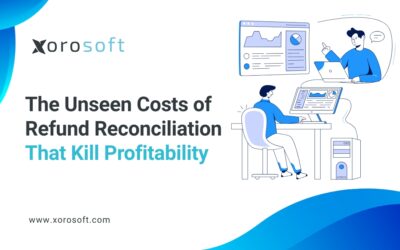
Introduction to ERP systems in healthcare
In today’s rapidly evolving healthcare industry, organizations are constantly seeking ways to improve efficiency, streamline processes, and enhance patient care. One technology that has been revolutionizing the healthcare landscape is Enterprise Resource Planning (ERP) systems. ERP systems are comprehensive software solutions that integrate various functions and departments within an organization, providing a unified platform for managing operations. While ERP systems have long been used in industries such as manufacturing and finance, their adoption in healthcare is relatively recent but rapidly gaining momentum.
The primary goal of an ERP system in healthcare is to centralize and automate key business processes, enabling seamless communication and collaboration across different departments. By consolidating data from multiple sources, an ERP system provides real-time insights, which can be crucial for decision-making. The ability to access accurate and up-to-date information allows healthcare providers to make informed decisions promptly, leading to improved patient outcomes and overall organizational efficiency.
Benefits of Implementing an ERP System in Healthcare
Implementing an ERP system in healthcare brings a multitude of benefits to organizations. Firstly, it enhances operational efficiency by automating and integrating key processes across different departments. For example, an ERP system can automate patient registration, appointment scheduling, and billing, reducing administrative burden and improving accuracy. Additionally, ERP systems provide real-time visibility into critical data, enabling healthcare organizations to make informed decisions and optimize resource allocation.
Improved data accuracy is another major advantage of ERP systems in healthcare. With an ERP system, data is entered once and instantly accessible to all authorized users, eliminating the need for duplicate data entry and reducing the risk of errors. This ensures that healthcare professionals have access to accurate and up-to-date patient information, facilitating better clinical decision-making and enhancing patient safety.
Furthermore, ERP systems improve communication and collaboration among different departments within a healthcare organization. By centralizing data and enabling real-time information sharing, these systems break down silos and promote a collaborative approach to patient care. For instance, doctors can access patient records, test results, and treatment plans in real-time, allowing for seamless coordination and continuity of care.
Key Features of ERP Systems in Healthcare
ERP systems in the healthcare industry boast several key features that contribute to their effectiveness and impact. Firstly, these systems integrate various departments and functions, including finance, human resources, supply chain management, and patient care. This integration eliminates data silos and allows for a holistic view of the organization, enabling better decision-making and improved resource allocation.
Another important feature of ERP systems in healthcare is their ability to automate routine and time-consuming tasks. For instance, appointment scheduling, patient registration, and billing can all be automated, reducing paperwork and administrative burden for healthcare professionals. Automation not only saves time but also reduces the risk of errors, ensuring accurate and efficient processes.
Furthermore, ERP systems provide real-time dashboards and analytics, allowing healthcare organizations to monitor key performance indicators and make data-driven decisions. These systems offer insights into patient volumes, resource utilization, revenue trends, and other critical metrics, enabling organizations to optimize operations and enhance financial performance.
Xorosoft ERP: An Overview of the Leading ERP Solution in the Healthcare Industry
Xorosoft ERP is a leading ERP solution specifically designed for the healthcare industry. This comprehensive system offers a range of features tailored to meet the unique needs and challenges of healthcare organizations. Xorosoft ERP integrates various departments, including finance, supply chain management, human resources, and patient care, providing a single platform for seamless operation.
One standout feature of Xorosoft ERP is its advanced inventory management system. With this system, healthcare organizations can efficiently track and manage their inventory, ensuring optimal stock levels, reducing wastage, and improving cost control. Real-time visibility into inventory levels and automated reordering processes eliminate the risk of stockouts and ensure uninterrupted patient care.
In addition to inventory management, Xorosoft ERP streamlines accounting processes in healthcare organizations. By automating financial reporting, budgeting, and invoicing, this ERP solution simplifies accounting tasks, improves accuracy, and enhances financial transparency. Healthcare organizations can generate comprehensive financial reports, analyze revenue streams, and identify cost-saving opportunities effortlessly.
How ERP Systems Improve Inventory Management in Healthcare
Efficient inventory management is crucial in healthcare organizations to ensure the availability of essential medical supplies, minimize waste, and control costs. ERP systems play a vital role in improving inventory management by providing real-time visibility, automating procurement processes, and optimizing stock levels.
With an ERP system, healthcare organizations can track inventory levels in real-time, ensuring that supplies are always available when needed. The system generates alerts when stock levels fall below a certain threshold, enabling proactive reordering and eliminating the risk of stockouts. This real-time visibility enables healthcare professionals to provide uninterrupted patient care, reducing delays and improving patient satisfaction.
Moreover, ERP systems automate procurement processes, streamlining the entire supply chain from order placement to delivery. By automating purchase orders, supplier management, and invoice processing, healthcare organizations can significantly reduce manual errors and administrative burden. This automation not only saves time but also improves accuracy, ensuring that the right supplies are procured at the right time and at the best possible prices.
Furthermore, ERP systems optimize stock levels by analyzing historical data, demand patterns, and lead times. By leveraging these insights, healthcare organizations can determine the optimal quantity of each item to stock, reducing excess inventory and minimizing carrying costs. This optimization ensures that inventory is managed efficiently, freeing up capital for other critical investments.
Streamlining Accounting Processes with ERP Systems in Healthcare
Accounting processes in healthcare organizations can be complex and time-consuming, involving numerous financial transactions, budgeting, and reporting. ERP systems streamline these processes, simplifying financial management, improving accuracy, and enhancing overall financial transparency.
By automating financial reporting, ERP systems eliminate manual data entry and reduce the risk of errors. Financial reports, including income statements, balance sheets, and cash flow statements, can be generated automatically, saving time for financial professionals and ensuring accuracy. Additionally, these systems enable real-time financial analysis, allowing organizations to monitor revenue streams, identify cost-saving opportunities, and make informed financial decisions.
Budgeting is another area where ERP systems excel. With these systems, healthcare organizations can create detailed budgets, track expenses, and compare actual performance against budgeted targets. This enables organizations to identify areas of overspending, implement cost control measures, and optimize resource allocation. The ability to track expenses in real-time ensures that healthcare organizations stay on top of their financial performance and make necessary adjustments promptly.
Furthermore, ERP systems simplify invoicing and accounts receivable management. By automating the invoicing process and integrating it with patient records, these systems ensure accurate and timely billing. This reduces the risk of revenue leakage, improves cash flow, and enhances overall financial stability for healthcare organizations.
Challenges and Considerations When Implementing an ERP System in Healthcare
While the benefits of implementing an ERP system in healthcare are substantial, organizations must navigate certain challenges and considerations during the implementation process. One significant challenge is the complexity of integrating multiple departments and functions into a single system. Healthcare organizations need to ensure that the ERP system meets the unique requirements of each department and that data integration is seamless. This may involve customization and extensive testing to ensure a smooth transition.
Another consideration is the cost associated with implementing an ERP system. Healthcare organizations must evaluate the return on investment and weigh it against the upfront and ongoing costs of implementing and maintaining the system. It is crucial to conduct a thorough cost-benefit analysis and consider long-term scalability and flexibility.
Change management is also a critical factor in successful ERP implementation. Healthcare organizations need to prepare employees for the transition, provide training and support, and address any resistance to change. Effective change management strategies can minimize disruption and ensure a smooth adoption of the new system.
Choosing the Right ERP System for Your Healthcare Organization
Selecting the right ERP system for a healthcare organization is a crucial decision that requires careful evaluation of various factors. Firstly, organizations should consider the specific needs and requirements of their departments and functions. Each department may have unique workflows and processes that need to be supported by the ERP system. It is essential to involve representatives from different departments in the selection process to ensure their needs are met.
Additionally, organizations should evaluate the scalability and flexibility of the ERP system. As healthcare organizations grow and evolve, the ERP system should be able to accommodate changing requirements and seamlessly integrate new functionalities. Scalability ensures that the system can grow with the organization and adapt to future needs.
Integration capabilities are another crucial consideration. The ERP system should be able to integrate with existing systems and technologies, such as electronic health records (EHRs), laboratory information systems, and billing software. Seamless integration ensures smooth data flow between different systems, reducing redundancies and improving overall efficiency.
Lastly, organizations should consider the reputation and track record of the ERP solution provider. A reputable provider with experience in the healthcare industry is more likely to understand the unique challenges and requirements of healthcare organizations. It is advisable to seek references and testimonials from other healthcare organizations that have implemented the ERP system.
The Future of ERP Systems in Healthcare
As technology continues to advance, the future of ERP systems in healthcare looks promising. The integration of artificial intelligence (AI) and machine learning (ML) into ERP systems will enable advanced analytics, predictive modeling, and intelligent automation. AI-powered ERP systems can analyze vast amounts of data, identify patterns, and provide actionable insights for healthcare organizations. This will facilitate more accurate forecasting, personalized patient care, and improved operational efficiency.
Moreover, as healthcare organizations increasingly adopt telehealth and remote patient monitoring, ERP systems will play a crucial role in integrating these technologies. ERP systems will enable seamless data exchange between telehealth platforms, EHRs, and other systems, ensuring a holistic view of patient data and facilitating remote care delivery.
In conclusion, the implementation of ERP systems in healthcare has revolutionized the industry, enhancing operational efficiency, improving patient care, and streamlining processes. The benefits of ERP systems, such as improved data accuracy, enhanced communication, and optimized resource allocation, are evident in numerous success stories of healthcare organizations. However, organizations must consider the challenges and considerations associated with ERP implementation and carefully select the right ERP system for their unique needs. With the future integration of AI and ML, ERP systems in healthcare will continue to evolve, delivering even greater value and transforming the way healthcare organizations operate.
Conclusion
The impact of ERP systems on the healthcare industry cannot be overstated. These systems have revolutionized healthcare operations, improving efficiency, accuracy, and patient care. From streamlining inventory management to automating accounting processes, ERP systems provide a comprehensive solution for healthcare organizations. Success stories of organizations implementing ERP systems.
While implementing an ERP system presents certain challenges, careful consideration and effective change management can ensure a successful adoption. Healthcare organizations must select the right ERP system that meets their specific needs, considering factors such as department integration, scalability, and flexibility. The future of ERP systems in healthcare holds even greater potential, with the integration of AI and ML enabling advanced analytics and seamless integration with telehealth technologies.
To experience the transformative power of ERP systems in healthcare, book a demo with Xorosoft today. Discover how Xorosoft ERP can revolutionize your healthcare organization, streamline processes, and enhance patient care. Don’t miss out on the opportunity to optimize your operations and stay ahead in the ever-evolving healthcare industry.









